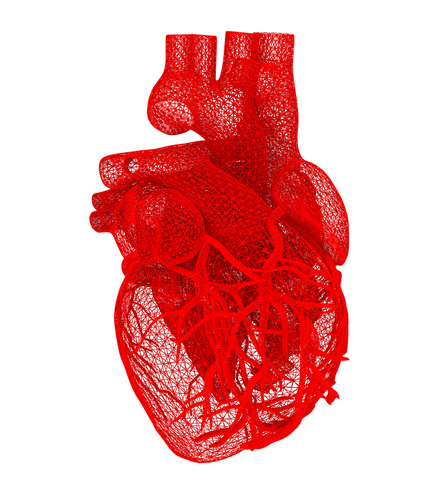This human heart-muscle patch can boost heart attack recovery
IANS Jan 15, 2018
Novel heart-muscle patches made with human cells can significantly improve recovery from a heart attack, results of a clinical trial show.

The results are a step closer to the goal of treating human heart attacks by suturing cardiac-muscle patches over an area of dead heart muscle in order to reduce the pathology that often leads to heart failure, said scientists led by Jianyi "Jay" Zhang, Chair of University of Alabama at Birmingham.In the study, described in the journal Circulation, the team tested human cardiac-muscle patches of 1.57 by 0.79 inches in size and nearly as thick as a dime, created in the lab, on large animals in a heart attack model.
Transplanting two of these patches onto the infarcted area of a pig heart significantly improved the function of the heart's left ventricle, the major pumping chamber.The patches also significantly reduced infarct size, which is the area of dead muscle, heart-muscle wall stress and heart-muscle enlargement, as well as significantly reducing apoptosis, or programmed cell death, in the scar boarder area around the dead heart muscle.Furthermore, the patches did not induce an arrhythmia in the hearts -- the improper beating of the heart, too fast or too slow.
Each patch was made from a mixture of three cell types -- four million cardiomyocytes, or heart-muscle cells, two million endothelial cells -- known to help cardiomyocytes survive and function in a micro-environment -- and two million smooth muscle cells, which line blood vessels.Each patch was grown in a three-dimensional fibrin matrix that was rocked back and forth for a week. The cells begin to beat synchronously after one day.This mixture of three cell types and the dynamic rocking produced more heart muscle cells that were more mature, with superior heart-muscle physiological function and contractive force.The patches resembled native heart-muscle tissue in their physiological and contractile properties, the scientists noted.
-
Exclusive Write-ups & Webinars by KOLs
-
Daily Quiz by specialty
-
Paid Market Research Surveys
-
Case discussions, News & Journals' summaries